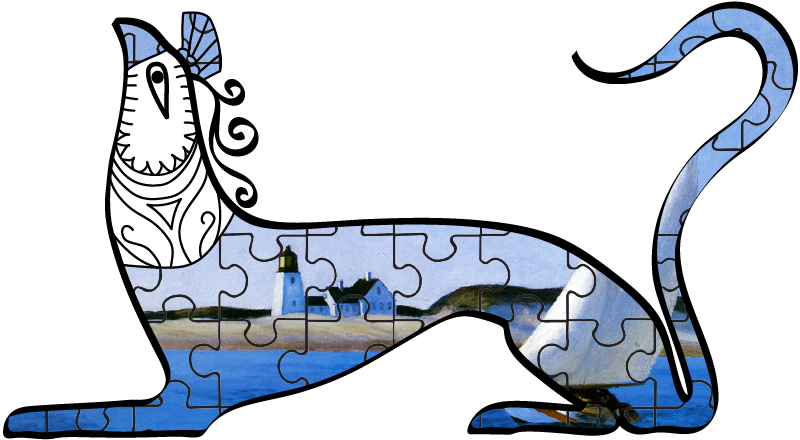Lidar and Landscapes in the Archaeology of Greece
On 2 January 2024 abstracts (200 words) are due for a workshop entitled Lidar and Landscapes in the Archaeology of Greece, to take place on 15 March 2024 at the American School of Classical Studies. Abstracts should be sent to Alex Knodell at
• Problems and potential for lidar applications in Greece versus other parts of the world
• Techniques for processing or visualizing point clouds and various types of derivative rasters
• Archaeological and environmental spatial analysis
• Feature identification and classification
• Machine learning
• Ground-truthing, verification, and error detection
• Comparison with other remote sensing techniques
• Issues of scale—site, landscape, and regional applications
• Lidar as an archaeological tool versus a remote sensing research topic in its own right
• Interdisciplinary collaboration
10th UCLA GSAA
On 4 January 2024 abstracts (250 words) are due for papers, roundtables, panels, or other formats at the 10th UCLA Cotsen Institute of Archaeology Graduate Student Association of Archaeology (GSAA) Conference. Plural Geographies: exploring alternative ecologies and navigating through the field, to be held in hybrid format at the Cotsen Institute of Archaeology at the University of California, Los Angeles, on 17–18 May 2024. Further information is available from
• Ecologies: historical ecology; political ecology; multi-natures; networks; entanglements
• Geographies: critical geographies; alternative geographies; geographical methods; GIS; mapping memory; mapping experiences; critical mapping; ecologies; places
• Place and space: place-making; spatial experience; architectonics; critical heritage; heritage and contested land; identity and place; thirdspaces
• Landscapes: seascapes; skyscapes; earth; archaeoastronomy
• Land: land-use; land rights; land back; borders; borderlands; migration; land-based violence; diaspora; exile
• Time and temporalities: periods; epochs; relative dating; Indigenous conceptualizations of time; alternative timescales; archaeology of the contemporary; archaeology of the past informed by the present; archaeology of the future
• Beyond archaeology: disciplinary reimagining; multidisciplinary archaeology; decolonizing archaeology; breaking disciplinary boundaries; architecture and historicity
2nd Women in the Archaeology of Greece
On 15 January 2024 abstracts (500 words in Greek, French, English, or German) are due for the second workshop on Women in the Archaeology of Greece: Tribute to Veronika Mitsopoulos-Leon, with a focus on women and archaeological institutions, to take place on 13 March 2024 at the Austrian Archaeological Institute in Athens, co-organized by the École française d'Athènes. Further information is available at https://www.efa.gr/appel-a-communications-atelier-femmes-et-institutions-archeologiques/. The 2024 workshop aims to explore different aspects of the institutional obstacles and opportunities encountered by women, in particular:
• The official or unofficial reluctance towards women on the part of foreign institutes and Greek universities, Archaeological Services, museums, and research centers
• The role of these institutions as springboards or, on the contrary, brakes in the career of women archaeologists, for instance in terms of funding opportunities
• The strategies adopted by women to pursue their career goals
PEBA 4
On 15 January 2024 abstracts (500 words) are due for the 4th Perspectives on Balkan Archaeology (PEBA 4). The Things of Life: Resources and Religion in the Metal Ages in Southeastern Europe, to be held on 25-28 September 2024 in Varna. Further information is available at https://pebasite.wordpress.com/. Speakers are invited to present papers related to one or several of the following issues:
• How did the regular needs for materials and resources affect the socio-economic developments of prehistoric communities?
• Power and Landscape: How is the emergence of power related to access to and control over different types of materials and resources?
• Sustainability and exploitation: How was sustainability used to manage resources effectively? Which consequences had exploitation of resources?
• Production, Trade, Exchange, and Competition: How did economic developments, new technologies in extracting and producing various materials, and expanded trade networks facilitate societies’ access to resources from more distant places?
• What role did animal and plant resources play in communities? What was the symbolic significance of certain animals and plants in societies (in terms of archaeozoology/archaeobotany and animals/plants in funerary contexts, deposits, or pictorial representations)?
• What role does access to water sources play in the location and development of settlements, roads, and networks? And how are water sources used or associated with a religious or ritual context?
• How and what materials and resources were used for the various rites, burial facilities and treasures?
2nd Indus and the Aegean
On 29 February 2024 abstracts (250 words maximum) for 20-minute papers are due for the Second International Workshop on Relations Between the Indus and the Aegean in the Bronze Age: Commodities and Exchange, to take place on 29-30 November 2024 at the University of Oxford. All presenters are invited to offer their papers for publication in a peer-reviewed proceeding of the workshop to be edited by Dr. Marie Nicole Pareja. Abstracts should be sent to Robert Arnott at

